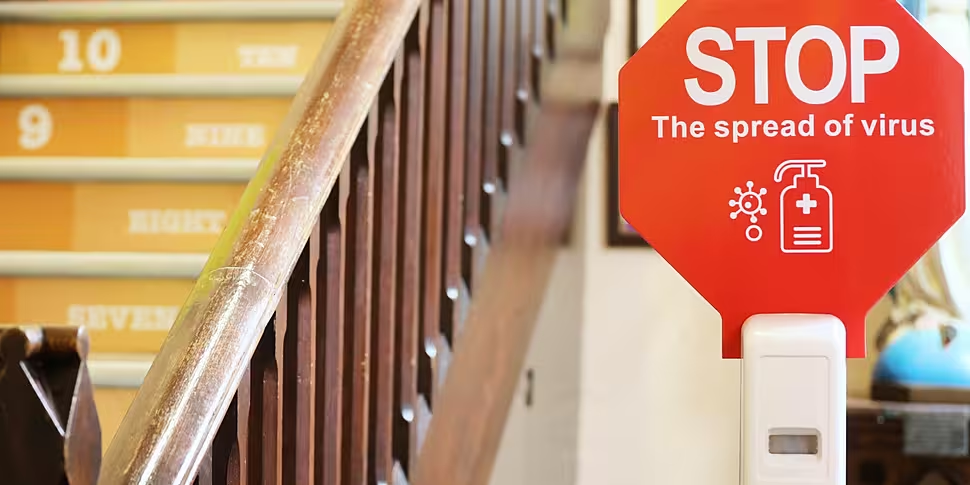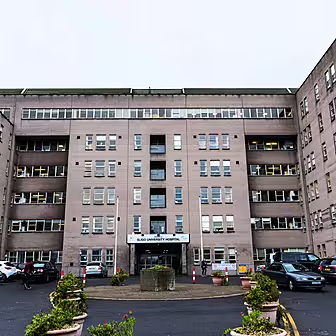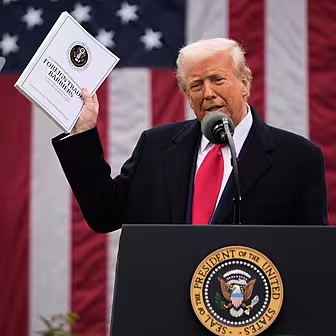The Deputy Chief Medical Officer has appealed to parents to limit their interactions with other people when schools reopen next week.
The phased reopening will see junior infants, senior infants, 1st class, 2nd class and Leaving Cert pupils return to classrooms on Monday.
In an open letter to parents, Dr Ronan Glynn has urged them not to congregate at school gates and to avoid organising play dates.
Speaking this evening, the deputy CMO says health officials want to avoid any more school closures in the months ahead.
He said: "There will of course be a natural tendency for parents to stop and chat, and to catch up - given they haven't seen each other for so long, and given the enormous efforts they've had to make themselves over the last number of weeks in particular.
"But I would really ask people to try to limit their mobility and limit household interaction as much as possible over the coming weeks."
You can read Dr Glynn's full open letter below:
To parents and guardians,
Through your hard work and willingness to buy in to public health guidance over the past two months, we have made real progress in suppressing the most recent wave of COVID-19. This progress has meant that primary and post-primary schools and the wider provision of childcare can now commence on a phased basis.
The importance of schools for the overall health and wellbeing of children cannot be overstated, and the risk of COVID-19 has been carefully weighed against the very real harm that can be caused by sustained school closures. Schools are at the heart of our communities and they play a fundamental role in the social lives and wellbeing of our children; this is particularly true for children who have special educational needs, are disadvantaged or who may have been disproportionately impacted by school closures over the last year.
Our priority is to ensure a safe return to schools for students, their families and school staff, which is why we have recommended a phased return to in-school learning.
In making this recommendation, the NPHET’s most significant concern is that it will be taken as a signal by parents and wider society that other forms of household mixing, and mobility are now acceptable.
We cannot afford for this to happen at this time. Despite the progress we have made, COVID-19 is still circulating at high levels in our communities. We must do all we can individually and collectively to ensure that the reopening of schools results in the minimum possible upward pressure on the reproduction number.
Please avoid congregating at school gates over the coming weeks. Please do not have play dates or organise after school activities which involve household mixing. And please continue to work from home unless essential. It is only through your continued buy-in to these measures that we can ensure that our children will get back to school and then stay back in school.
I know these are difficult requests. We all – adults and children alike – want to meet up with our friends and neighbours and get back to our old routines. And we will get there.
We now have three very effective vaccines with, hopefully, three more on the way. Over the coming weeks, older people, and those at high or very high risk of severe disease will be vaccinated and we will see substantial increases in supply from April onwards. And we are already seeing the very positive impact of vaccines in our nursing homes and among our healthcare workers. If we can combine this rollout with a continued suppression of the disease through March and April, we will have many more options in terms of easing of measures and should be able to provide much greater levels of certainty to people about the months ahead.
Finally, I want to take this opportunity to thank you for all you have done to keep your family and our communities safe over the last year. I also want to thank all teachers, principals and school staff who have worked so hard to ensure measures have been put in place to limit the risk of spread of COVID-19 in schools. It has been this kind of work, done quietly and by the majority, which has underpinned our national response to COVID-19 and which, ultimately, will see us through to brighter days ahead.









